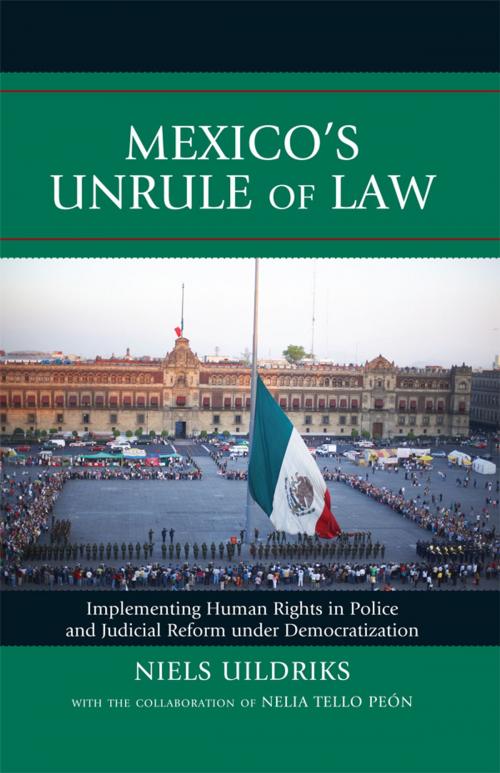Mexico's Unrule of Law
Implementing Human Rights in Police and Judicial Reform under Democratization
Nonfiction, Social & Cultural Studies, Political Science, Politics, Law Enforcement, History, Americas, Mexico| Author: | Niels Uildriks | ISBN: | 9780739135105 |
| Publisher: | Lexington Books | Publication: | April 2, 2010 |
| Imprint: | Lexington Books | Language: | English |
| Author: | Niels Uildriks |
| ISBN: | 9780739135105 |
| Publisher: | Lexington Books |
| Publication: | April 2, 2010 |
| Imprint: | Lexington Books |
| Language: | English |
Mexico's crisis of security is unrelenting. Why is it so hard to establish the rule of law, and why does the country's justice system continue to struggle to deliver both security and adherence to democratic values and human rights? To answer these questions, Mexico Unrule of Law: Implementing Human Rights in Police and Judicial Reform under Democratization looks at recent Mexican criminal justice reforms, placing this Mexico City case study of the social and institutional realities of the evolving police and justice system within the county's long-term transition from authoritarian to democratic governance. In spite of the democratization on the electoral front, profound distrust has continued to characterize not only the relationship between citizens and state institutions but also social, inter-state, and intra-state relations. Against this background, the book analyses extensive and penetrating police surveys and interviews to offer innovative ideas on how to simultaneously achieve greater community security, democratic policing, and adherence to human rights.
Mexico's crisis of security is unrelenting. Why is it so hard to establish the rule of law, and why does the country's justice system continue to struggle to deliver both security and adherence to democratic values and human rights? To answer these questions, Mexico Unrule of Law: Implementing Human Rights in Police and Judicial Reform under Democratization looks at recent Mexican criminal justice reforms, placing this Mexico City case study of the social and institutional realities of the evolving police and justice system within the county's long-term transition from authoritarian to democratic governance. In spite of the democratization on the electoral front, profound distrust has continued to characterize not only the relationship between citizens and state institutions but also social, inter-state, and intra-state relations. Against this background, the book analyses extensive and penetrating police surveys and interviews to offer innovative ideas on how to simultaneously achieve greater community security, democratic policing, and adherence to human rights.















